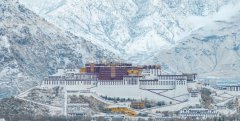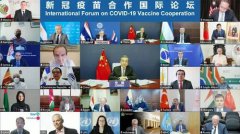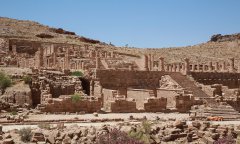Home>>People's Daily Online Exclusives
Facts on human rights advancements in Xizang, ChinaBy Zamir Ahmed Awan (People's Daily Online) 10:28, March 31, 2025
In March 2025, the State Council Information Office of the People's Republic of China released the white paper "Human Rights in Xizang in the New Era." This document provides a comprehensive and factual account of the significant advancements in human rights within the Xizang Autonomous Region, commonly known as Tibet, since the 18th National Congress of the Communist Party of China (CPC) in 2012. These developments starkly contrast with the misleading narratives propagated by certain Western nations, notably the United States, which have consistently misrepresented China's efforts in the region to suit their geopolitical agenda.
Economic development and poverty alleviation
Over the past decade, Xizang has witnessed unprecedented economic growth. The region's gross domestic product (GDP) surged to 213.26 billion yuan ($29 billion) in 2022, a 128 percent increase from 2012. Xizang ranks among China's fastest-growing regions, with an average annual growth rate of 8.6 percent. Such economic progress has been pivotal in eradicating absolute poverty. By the end of 2019, all 628,000 registered impoverished people in the region had risen from poverty. In 2024, the per capita net income of those lifted out of poverty in Xizang increased by over 12.5 percent. This accomplishment is a testament to China's commitment to ensuring the right to development for all citizens, empowering them to lead dignified and prosperous lives.
Advancements in education
Education is a cornerstone of sustainable development and human rights protection. Recognizing its importance, Xizang became the first provincial-level region in China to implement a 15-year publicly funded education system, spanning kindergarten to senior high school. This initiative has significantly expanded access to education, particularly benefiting children in remote areas while reducing financial burdens on families. By 2024, there were 3,618 schools at various levels and of different types, 96,600 faculty and staff members, and 970,000 students on campus, accounting for more than 25 percent of Xizang's total population. The average length of education among new workforce entrants has increased to 13.1 years, reflecting a strong emphasis on cultivating a knowledgeable and skilled population.
Health care improvements
Xizang has made remarkable strides in health care infrastructure, ensuring that the right to health is effectively protected. In 2023, there were 5.9 hospital beds per 1,000 people, up from 3.29 in 2012; 8.05 health care professionals per 1,000 people, up from 3.67 in 2012; and 3.34 practicing physicians or physician assistants per 1,000 people, up from 1.53 in 2012. The subsidy on basic public health services per capita increased from 25 yuan in 2012 to 115 yuan in 2024, with 80 percent funded by the central budget, to provide urban and rural residents in the region with free basic health services. Additionally, traditional Tibetan medicine institutions have flourished, extending services to all townships and preserving the region's rich medical heritage. These improvements have contributed to a significant rise in average life expectancy to 72.19 years in 2020 from 68.17 years in 2010, demonstrating the tangible benefits of China's regional health care policies.
Cultural preservation and religious freedom
Contrary to baseless accusations of cultural suppression, China has undertaken extensive efforts to preserve and promote Tibetan culture and heritage. Xizang is home to over 1,700 sites for Tibetan Buddhism, providing ample space for the spiritual practices of the Tibetan people. Furthermore, monks and nuns are now included in comprehensive social security programs, including medical insurance, pensions and accident insurance — an unprecedented development in Tibetan Buddhism. The government has also enacted policies to ensure that traditional Tibetan customs, language and religious practices are respected and integrated into the broader societal framework. These measures affirm China's commitment to upholding the cultural and religious rights of all ethnic groups within its borders.
Political participation and civil rights
The people of Xizang actively engage in the governance of their region, exercising their political rights in accordance with China's Constitution and legal framework. Of the 25 deputies from Xizang in the 14th National People's Congress, 17 are from ethnic minority groups. These deputies, making up 68 percent of the delegation, include Tibetans and members of smaller ethnic minority groups like the Monba and Lhoba peoples. A total of 42,153 deputies to people’s congresses at four levels in the autonomous region have been elected, 89.2 percent of whom are from the Tibetan or other ethnic minority groups. Moreover, the chairperson position of the People's Government of Xizang has consistently been held by a member of the Tibetan ethnic group. This inclusive political structure ensures that all ethnicities have a voice in governance and decision-making processes.
Addressing Western criticisms










